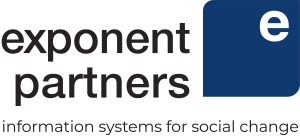Data Governance: What Does It Really Mean for Nonprofits?
Nonprofits, like any other modern organization, must rely on data to inform their decisions and drive their social impact mission. However, managing this data can be a challenging task, especially when dealing with sensitive donor or client information. That’s where data governance comes in.
For nonprofits, effective data governance is critical to ensuring the reliability and accuracy of the data they collect and use, as well as protecting the privacy and confidentiality of their stakeholders.
In this article, we’ll take a closer look at what data governance means for nonprofits and how to implement a strong data governance framework.
What Is Data Governance?
Data governance is the set of processes, policies, and standards that ensure that data is managed effectively, securely, and consistently across an organization. The purpose of data governance is to enable organizations to use their data assets effectively to achieve their goals while minimizing risk.
In the context of nonprofits, the data governance definition encompasses:
- data quality management
- data security and privacy
- data architecture and infrastructure
- data ownership
- data access and sharing
What Is The Difference Between Data Governance and Data Management?
Data management refers to the processes and activities involved in collecting, storing, organizing, maintaining, and analyzing data. It focuses on ensuring that data is accurate, complete, and available for use when needed.
On the other hand, data governance refers to the overall management of data-related policies, procedures, and standards within an organization. It focuses on ensuring that data is managed in a way that is secure, compliant with relevant regulations, and aligned with the organization’s strategic goals.
In other words, data management is concerned with the technical aspects of handling data, while data governance is concerned with the broader organizational context in which data is managed.
The Importance Of Data Governance For Nonprofits
In today’s data-driven world, managing data effectively and responsibly is crucial for nonprofits. Here are some reasons why.
It Measures Impact
Nonprofit organizations use data to measure their impact and effectiveness in achieving their mission. Effective data governance ensures that the data used for impact measurement is accurate, complete, and consistent.
It Ensures Responsible Use of Data
Nonprofits have the duty to use their data responsibly and be transparent about their data practices. Data governance helps ensure that data is used ethically and with consent. This includes providing clear information about data collection, use, and sharing of data.
Comply With Regulatory and Legal Requirements
Nonprofits are subject to a range of regulatory requirements related to data privacy and security. This includes the General Data Protection Regulation (GDPR) and the California Consumer Privacy Act (CCPA). Effective data governance helps nonprofits comply with these requirements and avoid legal and financial consequences.
Key Elements Of A Nonprofit Data Governance Framework
A nonprofit’s data governance framework may vary based on the organization’s size, complexity, and specific data needs. However, some common elements include:
Data Governance Policies
The framework should include policies and procedures that define the organization’s data governance practices. This includes data quality standards, data privacy and security requirements, and data access and sharing protocols.
Data Stewardship
Nonprofits need to establish who is responsible for managing and maintaining their data. This is the role of a data steward, who ensures that data is accurate, complete, and secure.
Data Architecture and Infrastructure
Your organization’s data architecture should cover the structure, sources, and flow of data. It should also include information about your data storage and backup systems, and any recovery and continuity plans.
Data Quality Management
For data to be useful, it needs to be accurate and of good quality. Data quality management like data validation and data cleansing helps ensure that the data used is reliable. This way, they can make informed decisions with confidence and measure their impact effectively.
Data Security and Privacy
Experiencing a data breach is a serious concern as it could compromise your clients’ personal information. An example of this is the data breach at People Inc, when nearly 1,000 clients were exposed during the leak.
To prevent this from happening, nonprofits should implement security protocols and best practices such as encryption, password management, and access controls.
How To Develop A Data Governance Strategy That Aligns With Your Nonprofits’ Mission And Goals
Developing a data governance strategy for nonprofits can seem like a daunting task. Following these steps can help ensure that the process is structured and well-planned.
-
Define the organization’s mission and goals
Before you can use data to measure your nonprofit’s outcomes, you need to be clear on what it is that you hope to achieve. This means having a clearly defined mission and specific goals to work towards. Having these metrics defined from the get-go will help ensure that the data governance strategy aligns with the organization’s overall objectives.
-
Identify the organization’s data assets
Nonprofits should identify all the data assets they have and understand how the data is used, stored, and managed. This includes identifying internal and external data sources, data quality, data security, and data privacy risks.
-
Implement data governance technologies
Nonprofits should use the appropriate technologies to support their data governance strategy. This includes data management tools, data security solutions, and data privacy management systems.
-
Monitor and evaluate the data governance strategy
Consistently monitor and evaluate the data governance strategy to ensure that it is effective and aligns with your organization’s mission and strategic roadmap. This includes reviewing data quality, data privacy, and any data security incidents to make adjustments to the strategy as necessary.
Common Data Governance Challenges For Nonprofits
Implementing a data governance framework isn’t always a walk in the park. Some of the common challenges include:
Limited resources
You may have limited resources and expertise to implement a data governance framework effectively. This can make it difficult to hire staff with the necessary skills and invest in the required technology.
Data quality
There’s a chance you may have to deal with issues related to data quality, such as incomplete, inaccurate, or inconsistent data. This can make it challenging to establish trust in the data and make informed decisions based on it.
Data silos
Nonprofits may have multiple departments or programs that collect and manage their data independently, leading to data silos. Many organizations also struggle to have all their data consolidated into one system, often leading to many manual processes. This can make it difficult to share data across departments and programs, leading to duplication of efforts and missed opportunities for collaboration.
Lack of buy-in
Nonprofits may face resistance from staff or stakeholders who are hesitant to change their existing processes or share their data. This can slow down the implementation of a data governance framework and limit its effectiveness.
Don’t Let Data Overwhelm Your Nonprofit
There’s no reason to let data drive you up the wall and stress you out. Yes, it’s important to use data to make smart decisions and understand your nonprofit’s impact, but you don’t need to drown in it.
Luckily, Exponent Partners is here to help. With our expertise in Salesforce and data governance best practices, we can guide your nonprofit through the process of building a data-driven culture. Our team of experts is also here to help with strategic change management so that everyone on your team can embrace your new data governance process and policies.Take the first step toward better data governance and get in touch with our team. It’s time to turn your nonprofit’s data into a strategic asset and make a bigger impact in the world.

